The importance of a regular dental check up
Did you know that about 69% of Australians living in major cities have untreated tooth cavities? Is it because of poor oral hygiene? Yes, but not entirely. The main reason for the high incidence of teeth cavities, gum disease and other dental problems among Australians is that they don’t visit their dentist for a regular dental check up. The Australian Dental Association estimates that around 69% of Australians only visit the dentist when they absolutely have to – mostly when they have severe, unbearable toothache.
So, why are regular dental checkup visits important, and how can they help you in maintaining optimal oral health? Continue reading to find out.
Why Should You Visit Your Dentist Regularly?
1. Your Oral Health Directly Affects your Physical Health
Your mouth is a gateway to your entire body. If you have good oral health, it will also reflect on your physical health and wellbeing. When you regularly visit your dentist, he or she will thoroughly examine your oral cavity to detect any underlying oral health problem and treat it before it can cause further damage.
2. Prevent Teeth Cavities
While brushing twice daily and flossing go a long way in keeping your teeth squeaky clean, these measures are sometimes not enough to prevent dental cavities. When you visit your dentist regularly for checkups, he or she will be able to detect teeth cavities in their developing stages – even when they are not visible to the naked eye. Your dentist will use special instruments and equipment to diagnose and prevent teeth cavities and other dental problems before they become more prominent and cause permanent tooth damage.
3. Prevent Gum Disease
The Americal Dental Association estimates that over half of the American adults aged 30 or more suffer from gum problems. What makes gum disease extremely harmful for your oral and physical health is that in addition to causing dental complications such as jawbone destruction and tooth loss, the infection can also spread to other areas of the body and cause medical complications, some of them even life-threatening.
When you visit your dentist for a checkup, he or she will perform a detailed clinical examination to assess your gum health. If your teeth have plaque or tartar deposits – which are the main reason behind gum disease – your dentist will remove them by performing professional teeth cleaning. In this procedure, your dentist will use an ultrasonic scaler that vibrates at a very high frequency and performs plaque and tartar removal. Professional teeth cleaning is not just to prevent gum problems, but it also helps you get rid of minor surface stains.
4. Counselling and Guidance
An essential aspect of routine dental checkups is patient education and counselling. If your dentist finds that you have teeth cavities because of an imbalanced diet, he or she will advise on a tooth-friendly diet. Similarly, if your child has parafunctional habits like nail-biting or tongue thrusting – which can damage their teeth in the long run – your dentist will offer advice on how to break these harmful habits.
5. Repair of Replacement of Fillings
A damaged restoration can lead to the development of teeth cavities around the tooth-restoration margin. Therefore, damaged fillings or restorations must be replaced timely to prevent damage to the natural tooth structure. During a routine checkup, your dentist will also evaluate the status of your existing restorations such as fillings, crowns or bridges. If there are any damaged restorations, your dentist will repair or replace them.
5. Oral Cancer Screening
Oral cancer is a deadly disease. It has been shown that every 4 in 10 individuals diagnosed with throat and oral cancers die within five years. However, oral cancer is treatable – if caught early. The earlier oral cancer is diagnosed, the higher the chance of complete recovery.
Another critical aspect of a routine checkup is oral cancer screening. During this procedure, your dentist will perform a thorough examination of your head and neck region to look for any swellings or lumps.
If a suspicious swelling is found, it will be sent to the laboratory for a biopsy. While oral cancer screening only takes a few minutes to perform, it can prove to be life-saving. This reason alone should be sufficient to make you understand the importance of regular dental checkups.
6. Saving You Money
Would you prefer preventing a dental problem from arising in the first place or investing your time and hard-earned money in seeking treatment afterwards? Going to the dentist may seem a fruitless activity to many people, but it can actually help you in saving your money, and more importantly, in saving you from the agony and discomfort of seeking treatment afterwards – for a problem that could have easily been prevented in the first place – if you visited your dentist regularly.
How Often Should I See My Dentist?
Most dentists in Australia recommend their patients to visit every six months for a checkup. However, the frequency of your dental checkup visit depends on various factors – mainly your oral health. While twice-yearly checkups are sufficient for many people, others may need more frequent visits. For example, individuals at a higher risk of developing teeth cavities or gum infections should visit their dentist more often. According to the Australian Dental Association, individuals with an increased risk of gum disease may need to see their dentist every three months. Your dentist can recommend the frequency of checkup visits necessary based on your oral health status.
At Starbright Dental, we believe that a healthy smile is a beautiful smile. That is why we recommend our patients to visit us regularly for check-ups so that they can maintain pearly white teeth and healthy gums throughout their life. A beautiful and lasting smile only requires two things: to keep your gums and teeth clean through regular brushing and flossing and to visit your dentist for check-ups regularly.
To book a consultation to have your dental check up, please contact us on 07 5591 3620 or use the enquiry form on this page.

